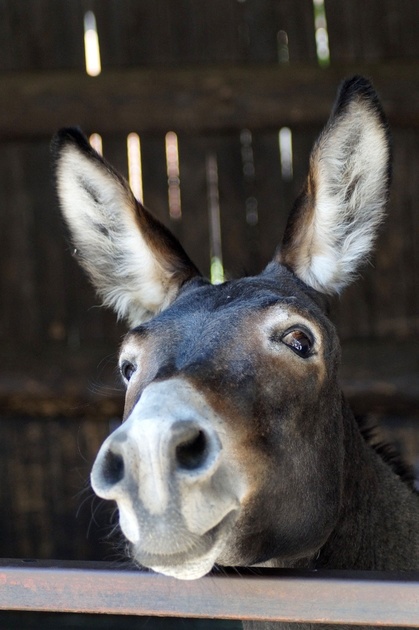
Honoring the Dishonorable – Parshat Balak
I don’t know about you, but I'm a fairly easy-going guy. Yet, there are still people who manage to get under my skin. Some are simply annoying while some are downright evil(this word may be not be PC but it is accurate). I would not want to have much to do with them yet sometimes I cannot avoid it. I would definitely not go out of my way to care for their honor.
Yet we see time and again that the Torah does this. In this week's parsha, for instance, we read of the famous story of Bilaam's donkey reprimanding Bilaam.1 If word of this got out, it might provide a tremendous boost and a sanctification of God's name. Everywhere the donkey went, people would say, "this is the donkey who talked down Bilaam who was on his way to curse Israel." Yet, we read in Rashi that in order to preserve Bilaam's honor, God killed the donkey. The humiliation of Bilaam who was talked down by a donkey would’ve been so great that God decided to care for Bilaam's honor and kill the donkey instead. He waived the sanctification of His own name, to preserve Bilaam's honor.2
This is how God deals with people who try to transgress. He cares for their honor. (This does not mean to advocate for leniency. Bilaam for instance was killed in the war his people waged against the Israeiltes.)
How do we care for those we don’t like? And how about for those closest to us? Do we yell at our children in public? Do we make time to sit and listen to our spouses? Do we judge our friends and neighbors without giving them the benefit of the doubt?
It is true that it is important to care for ourselves and to guard against being hurt, insulted or patronized. So, how would we want others to behave towards us? God gave up an incredible chance for His own honor to be advanced – and it didn’t even help! Bilaam still tried to curse the people. But God waived his own honor in favor of Bilaam.
Part of what makes us human beings "means being directed and pointing to something or someone other than itself."3 It is part of our existence as humans to care for the well-being of others. Even, and especially, the ones we love the most.
Click here for another logoParsha article on Balak
Notes
- Bamidbar 22:33 and Rashi op cit.
- Rabbi Chaim Shmulevitz, Sichot Mussar, brought in an article written by Rabbi Avruch on torah.org
- Viktor Frankl, 1970
PICTURE:© Martina Misar Tummeltshammer | Dreamstime Stock Photos
Have A Great Shabbat!![]()
For More Information On Logotherapy And How You Can Create A Fuller, More Meaningful Life, Or To Book An Online Session,
- Call Me At +972-54-589-3399, or in Israel 054-5893399
- Contact Me Thru my email at [email protected]

 Previous
Previous

